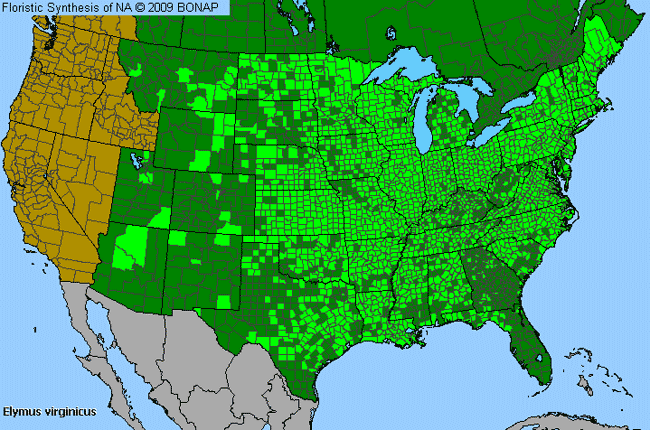Virginia Wild Rye (Elymus virginicus)

Virginia Wild Rye Species Description

This species is native to North America north of Mexico.
Allergenicity: Virginia Wild Rye (Elymus virginicus) is a mild allergen.
Pollination: Occurs in following seasons depending on latitude and elevation: Spring to Fall.
Angiosperm - Flowering Monocot: Plants in this group have one embryonic leave (single cotyledon). This group include the grasses, lilies, orchids and palms.
Grass/Grass-like: Any plant characterized by parallel-veined leaves that arise from nodes in the stem, wrap around it for a distance, and leave, especially those grown as ground cover rather than for grain.
Weed: Any plant growing in cultivated ground to the injury of the crop or desired vegetation, or to the disfigurement of the place; an unsightly, useless, or injurious plant.
Perennial: Living for many years.
Wetland Plant: Plants growing in aquatic or wetland habitats. These include all known floating, submerged, and emergent taxa, plus those that are found in permanently or seasonally wet habitats.
Herbaceous Stem: Not woody, lacking lignified tissues.
Virginia Wild Rye Species Usage

Related Links

More Virginia Wild Rye (Elymus virginicus) imagesby Jessie M. Harris from BONAP










